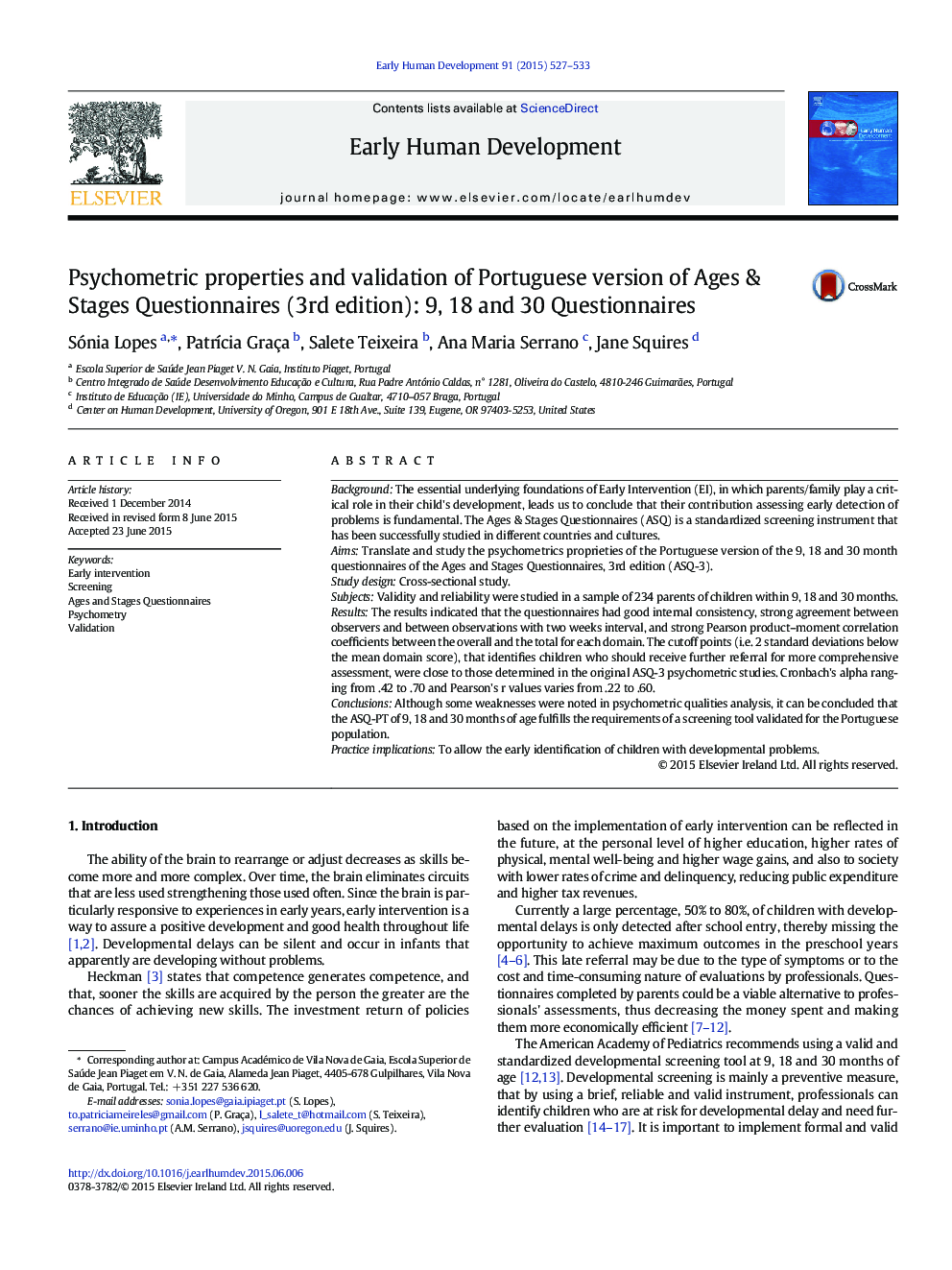| Article ID | Journal | Published Year | Pages | File Type |
|---|---|---|---|---|
| 3916392 | Early Human Development | 2015 | 7 Pages |
•Strong agreement between observers and between observations with a two week interval•Pearson's r between the overall and the total for each domain was strong.•First developmental screening tool validated for Portuguese population•ASQ-PT allows the early identification of children with developmental problems in Portugal.•Involve parents and caregivers in child screening enlarging their knowledge about development.
BackgroundThe essential underlying foundations of Early Intervention (EI), in which parents/family play a critical role in their child's development, leads us to conclude that their contribution assessing early detection of problems is fundamental. The Ages & Stages Questionnaires (ASQ) is a standardized screening instrument that has been successfully studied in different countries and cultures.AimsTranslate and study the psychometrics proprieties of the Portuguese version of the 9, 18 and 30 month questionnaires of the Ages and Stages Questionnaires, 3rd edition (ASQ-3).Study designCross-sectional study.SubjectsValidity and reliability were studied in a sample of 234 parents of children within 9, 18 and 30 months.ResultsThe results indicated that the questionnaires had good internal consistency, strong agreement between observers and between observations with two weeks interval, and strong Pearson product–moment correlation coefficients between the overall and the total for each domain. The cutoff points (i.e. 2 standard deviations below the mean domain score), that identifies children who should receive further referral for more comprehensive assessment, were close to those determined in the original ASQ-3 psychometric studies. Cronbach's alpha ranging from .42 to .70 and Pearson's r values varies from .22 to .60.ConclusionsAlthough some weaknesses were noted in psychometric qualities analysis, it can be concluded that the ASQ-PT of 9, 18 and 30 months of age fulfills the requirements of a screening tool validated for the Portuguese population.Practice implicationsTo allow the early identification of children with developmental problems.
